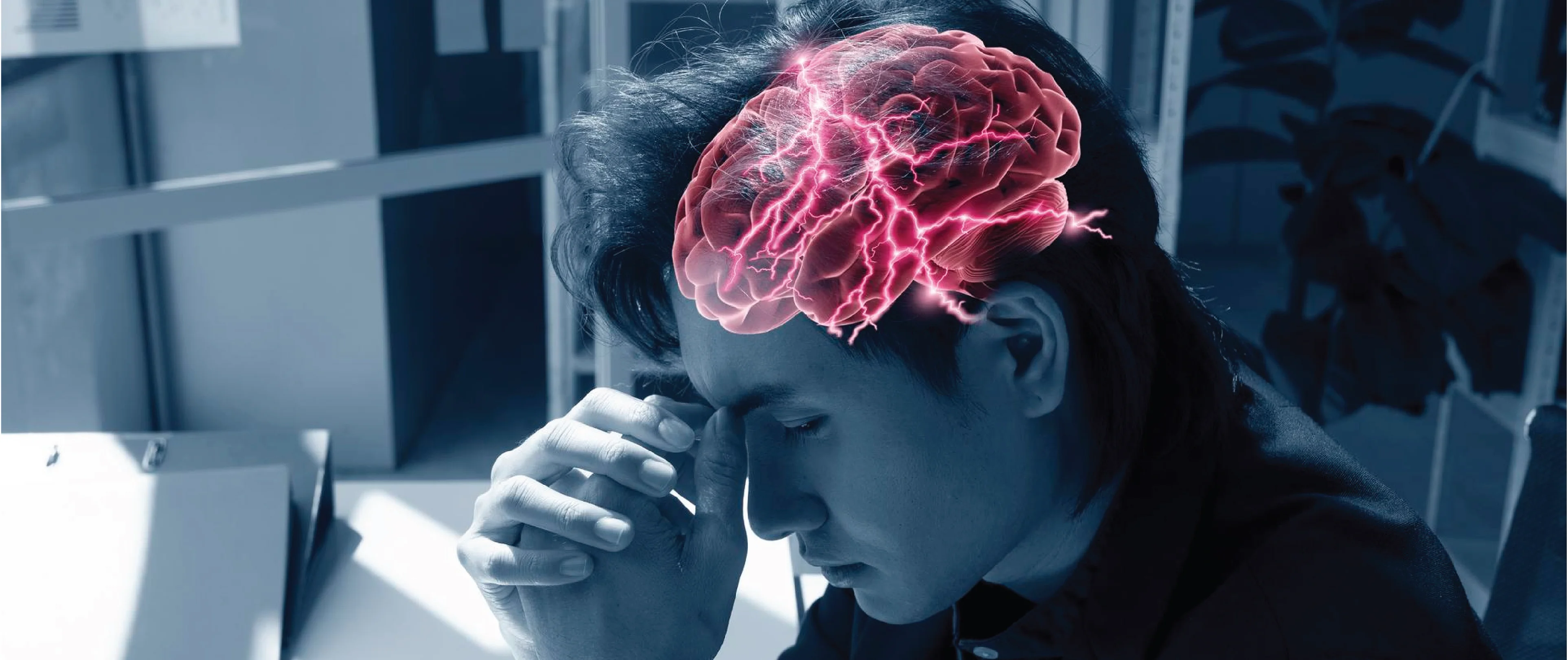
Book an Appointment
Call Us09958011121Importance of Neurorehabilitation in Managing Traumatic Brain Injury
With a soaring incident rate of 27 to 69 million per annum, traumatic brain injury is one of the leading causes of disability in the world. which can be brought on by a variety of mishaps and catastrophes. It happens when the brain's regular functioning is interfered with by a violent blow, abrupt jolt, or penetrating damage to the head. The severity of TBIs varies, ranging from minor concussions to serious injuries that may change a person's life. Fortunately, various advancements in the field of neurorehabilitation have made it possible for patients with traumatic brain injury, to recover and lead a quality life. This blog, by the experts from the top neurorehabilitation hospital in Delhi, will help you understand all about the importance of neurorehabilitation post-traumatic brain injury.
What Causes Traumatic Brain Injuries?
Traumatic brain injury can be caused by a variety of different factors, the most common of which include:
1. Falls: Falls are one of the leading causes of Traumatic brain injuries, particularly in the elderly and young children. Slip and fall accidents can lead to head injuries that, depending on their severity, may require extensive rehabilitation.
2. Motor Vehicle Accidents: Traumatic brain injuries are frequently caused by automobile, motorbike, and pedestrian collisions. Damage may occur if the force of collision pushes the brain within the skull.
3. Sports and Recreational Activities: In contact sports like football and boxing, athletes are particularly vulnerable to traumatic brain injuries.
4. Assaults: Serious traumatic brain injuries can result from deliberate acts of violence like assaults. In some situations, extensive rehabilitation could be necessary to regain lost abilities.
Also Read: How to Choose the Best Neuro Rehabilitation Centre in India?
How Can Traumatic Brain Injuries Affect You?
Since the brain controls and regulates all the important functions, traumatic brain injuries can give rise to various debilitating complications. The impact may be short-term or long-term, depending on the extent of the damage. The patient is likely to experience problems related to memory, balance, cognition and motor function, along with other complications like sleep disturbance, increased sensitivity, seizures, unconsciousness, anxiety and so on. Traumatic brain injury can affect different people in different ways, hence it is advisable to consult the experts from the top neurorehabilitation hospital in Delhi, for proper guidance and understanding.
Understanding Neurorehabilitation
Neurological rehabilitation, commonly referred to as neurorehabilitation is a specialized area that works with people who have complex neurological problems, such as traumatic brain injury, to help them regain lost skills and enhance their quality of life in general. It is a thorough, interdisciplinary strategy tailored to various medical specialists, such as psychologists, physical therapists, occupational therapists, neurologists, and speech-language pathologists, for the holistic well-being of the patient.
Benefits of Neurorehabilitation
Here are some of the key benefits of neurorehabilitation post-traumatic brain injury, as listed by the experts from the top neurorehabilitation hospital in Delhi:
1. Functional Improvement: The goal of neurorehabilitation is to improve a person's capacity for function. Enhancing coordination, balance, and mobility are a few examples of this. Physical therapists assist patients in regaining their strength and movement patterns so they may become more independent in their everyday activities.
2. Cognitive Rehabilitation: Many traumatic brain injuries (TBIs) lead to cognitive deficiencies, including difficulty with memory, attention, and problem-solving abilities. Cognitive therapy is a component of neurorehabilitation programs that helps individuals with cognitive disorders restore function.
3. Speech and Language Therapy: Speech-language diagnosticians are essential to the rehabilitation of those who have speech and language impairments because of traumatic brain injury. They assist patients with language processing difficulties, speech articulation, and communication skills recovery.
4. Psychological Support: Recovering from a traumatic brain injury can be emotionally taxing. In neurorehabilitation programs, psychologists and counselors offer patients emotional support and assist in managing stress and anxiety.
5. Pain Control: A few traumatic brain injuries cause long-term pain or discomfort. Pain management techniques can be included in neurorehabilitation programs to enhance patients' general comfort and well-being.
6. Assistive Devices and Technology: To increase a person's freedom, neurorehabilitation frequently makes use of assistive devices and technology. Mobility aids, communication gadgets, and customized software are a few examples of these tools.
7. Education and Training: Patients and their families receive education and training to better understand the nature of the TBI, its effects, and how to support the recovery process.
If you want to explore the finest neurorehabilitation modalities for traumatic brain injury, consult the neurology experts in Delhi at the top neurorehabilitation hospital.
 By -Dr Aaksha Shukla |
December 06, 2023 | 9 Min Read
By -Dr Aaksha Shukla |
December 06, 2023 | 9 Min Read
Parkinson’s Disease Treatment Hospital in India
Brain Stroke Treatment Hospital – Emergency Care
Stroke Paralysis Treatment Hospital – Advanced Neuro Care
Paralysis Treatment Hospital in India – Cost & Recovery
Brain Infection Symptoms, Causes, and When to Seek Emergency Care
Is Spine Surgery Right for You? Here’s How to Know
Brain Health at Every Age: Preventive Neurology Tips
International Patient Guide: Visiting India for Neuro & Spine Treatments
Robot-Assisted & Navigation-Guided Surgery: Safer Brain & Spine Procedures
Sports Injury Recovery: How Arthroscopy Helps You Heal Faster?
How Deep Brain Stimulation (DBS) Helps in Parkinson’s & Tremor Control
Early Warning Signs of a Brain Tumour & When to See a Neurosurgeon
Signs of a Stroke: When to Seek Emergency Neuro Care
Best Neurosurgery Hospitals in Delhi NCR: A Detailed Guide
Minimally Invasive Spine Surgery: Benefits, Cost & Recovery
Best Tips for Sports Injury Recovery
Guide to Stroke Prevention and Recovery
How to Manage Parkinson’s Symptoms Effectively

